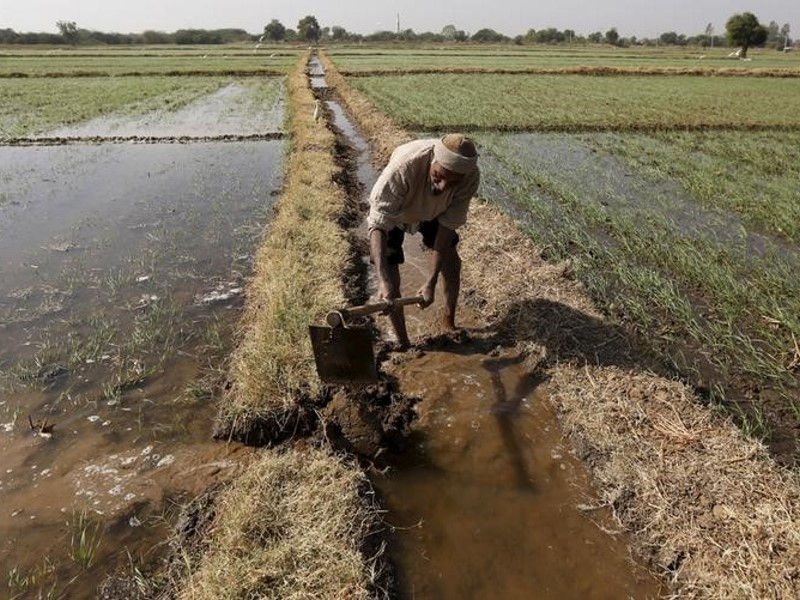Loan weaver- solution to farmers crisis?
June 22, 2017 | Expert Insights

On 21 June 2017, Karnataka Chief Minister Siddaramaiah announced that the state will waive off farmer loans up to Rs 50,000 which were taken from co-operative banks till June 20, costing the state exchequer Rs 8,165 crore. Siddaramaiah made a surprise announcement in the Assembly. The move was welcomed by the BJP, principal opposition party in the state.
The waiver will help 22,27,506 farmers who had obtained loans from cooperative banks. Karnataka has become the fourth state this year to take such step following Uttar Pradesh, Maharashtra and Punjab. The state is headed for polls Assembly elections next year. Farmers in various parts of the country have been agitating seeking waiver of loans. Keeping up the poll promise, Uttar Pradesh was the first state this year to announce Rs. 36,359 crore farm debt waivers for small and marginal farmers. After that almost all the states has waived of the farm loans like Maharashtra, Punjab, etc.
"Karnataka's farmers should feel that this is their government, and I am confident that the Chief Minister is constantly listening to them and working for their interest," said the CM.
What is it?
Farm loans may be crop loans or investment loans taken to buy equipment. Both farmers and banks reap a good harvest when all is well. But when there is a poor monsoon or natural calamity, farmers struggle to repay loans. The rural distress in such situations often prompts States or the Centre to offer relief through either reduction or complete waiver of loans.
Essentially, the Centre or States take over the liability of the farmers and repay the banks. Waivers are usually selective — only certain loan types, categories of farmers or loan sources may qualify. For instance, in 2008, crop loans and investment loans were waived for marginal and small farmers (those with less than 2 hectares of land ownership); other farmers were only given a 25% reduction. The recent waiver in UP is also a selective one. The Madras High Court has directed Tamil Nadu to offer a waiver to all farmers in the State.
Analysis
Agriculture in India has been facing many issues — fragmented land holding, depleting water table levels, deteriorating soil quality, etc. Farmers are often forced to borrow to manage expenses. Also, many small farmers are not eligible for bank credit borrow at exorbitant interest rates from private sources. When nature rides roughshod over debt-ridden farmers in the form of erratic monsoon and crop failures, they face grim options.
Indebtedness is a key reason for the many farmer suicides in the country.
Loan waivers provide some relief to farmers in such situations, but there are debates about the long-term effectiveness of the measure. Critics demand making agriculture sustainable by reducing inefficiencies, increasing income, reducing costs and providing protection through insurance schemes. They point out that farm loan waivers are at best a temporary solution and entail a moral hazard — even those who can afford to pay may not, in the expectation of a waiver.
This waiver would benefit about 22 lakh farmers across Karnataka. Karnataka was under severe drought for the last three years and the burden of repayment of loans was becoming unbearable to the farmers. Of over Rs. 52,000 crore crop loan or short-term loan obtained by farmers, 80% (about Rs. 42,000 crore) has been obtained from nationalised and grameen banks and 20 per cent (Rs. 10,736 crore) from cooperative banks.
Assessment
Anything relating to food and hence its producers concerns all of us. As per the NSSO’s 59th survey, 40 % of farmers dislike farming and would quit if they could. Not finding short-term and long-term solutions can severely impact food security.
Our assessment is that, the demand for loan waivers has not only spread now to other states but will continue to remain the major method through which governments appease a section of farmers but they cost tax payers. While such an approach does yield political dividend, it causes systemic damage to the farm credit market and does nothing to end the debt traps five years from now.
Loan waivers can offer temporary relief, but long-term solutions are needed to solve farmer woes. Investors in bank stocks, may have to worry, as waivers may add to the already elevated non-performing assets of banks.








Comments